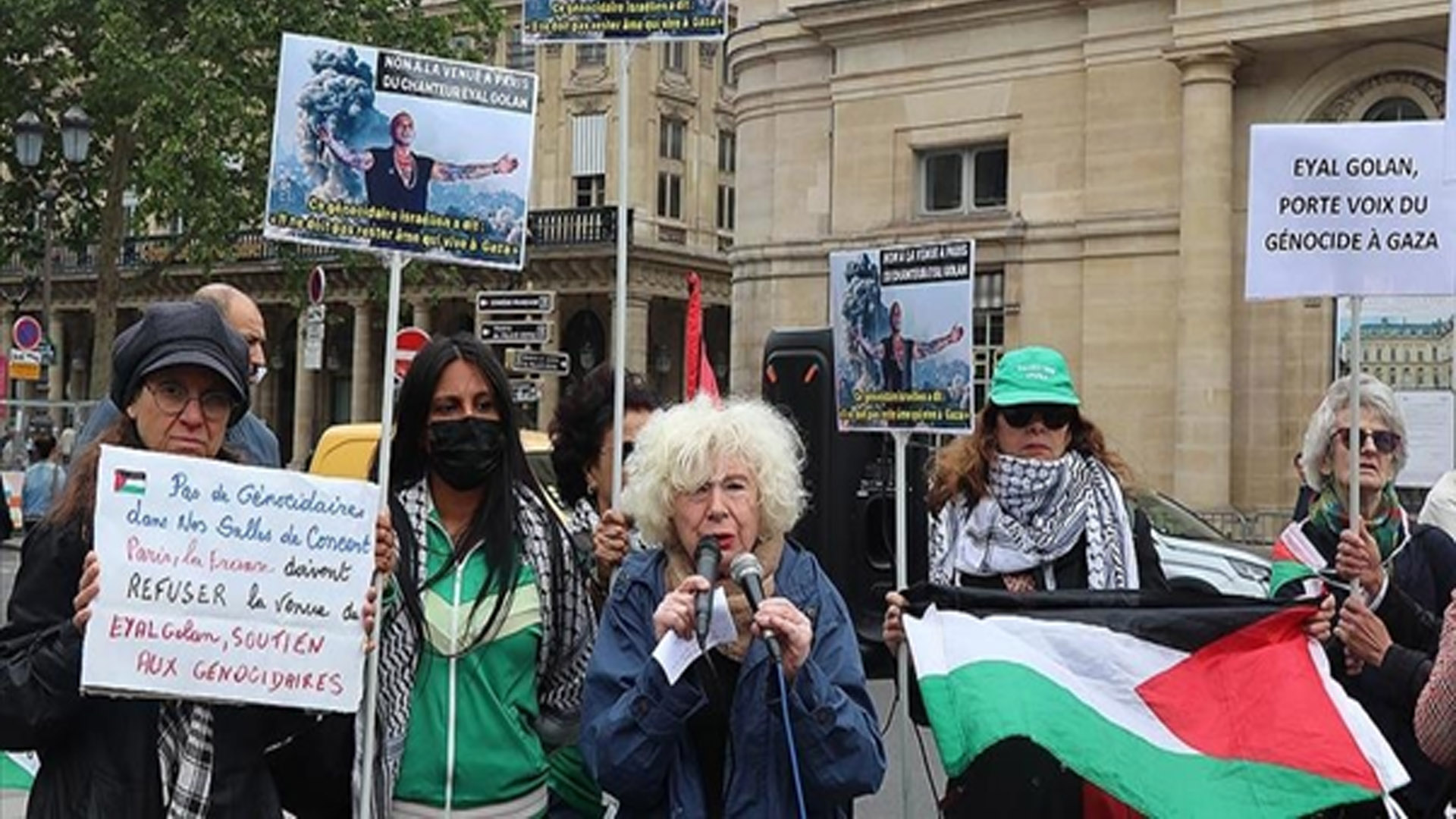
Elham Asaad Buaras
Israeli singer Eyal Golan has sparked fierce controversy by performing in Paris despite widespread calls for the cancellation of his concerts following inflammatory remarks about Gaza.
Shortly after the October 7, 2023, Hamas attacks on Israel, Golan ignited international outrage by publicly calling for the Gaza Strip to be “wiped out” and declaring that “no soul should remain” in the Palestinian enclave. On the very day of the attacks, he posted on social media that “Gaza must burn,” remarks widely condemned as incitement to violence.
Yet, despite the backlash, Golan drew more than 4,000 spectators to the Dôme de Paris on May 19, 2025.
The concerts featured visuals praising the Israeli military — including images of soldiers and tanks, accompanied by Hebrew slogans such as “Israel is alive.” Given the ongoing Israeli airstrikes on Gaza, which local authorities say have claimed over 53,000 civilian lives, the timing of these performances only intensified tensions.
The shows triggered protests outside the venue in Paris’ 15th arrondissement, where demonstrators raised Palestinian flags and denounced what they called an endorsement of “genocide.” Vocal opponents included the Union of French Jews for Peace (UJFP), the Jewish decolonial collective Tsedek, and notably, the left-wing party La France Insoumise (LFI).
Representing the latter, a spokesperson condemned the event as “a megaphone for those supporting genocide,” while LFI lawmaker Thomas Portes, who joined the protests, insisted, “France should not provide a platform for calls to violence and extermination.” The UJFP echoed these concerns, warning that Golan’s rhetoric “incites hatred and must be condemned.” Security measures around the concert venue were heightened, reflecting the tense atmosphere in Paris during the performances.
Responding to the controversy, Golan remained defiant, asserting, “We, the Jews and Israelis, will never surrender or apologise.” He characterised his concerts as a celebration of Jewish culture and a unifying event for France’s Jewish community. Concert organisers Liam Productions defended the shows, accusing critics of antisemitism and arguing that attempts to cancel the concerts were efforts “to silence Israeli voices.” They maintained the events aimed to bring people together rather than fuel political conflict.
This episode highlights the ongoing tension between freedom of expression and responsibility in public discourse amid a deeply polarised conflict. While supporters defend Golan’s right to perform, critics argue the concerts legitimise violent rhetoric against Palestinians.
For now, French authorities have permitted the concerts to proceed, with further performances scheduled amid persistent protests and heightened security.
Photo: Protesters gather near the French Ministry of Culture in Paris on May 15, to demand the cancellation of a planned concert by Israeli singer Eyal Golan, who is remembered for his controversial statement advocating for the destruction of Gaza. (Credit: Esra Taşkın/Anadolu Agency)